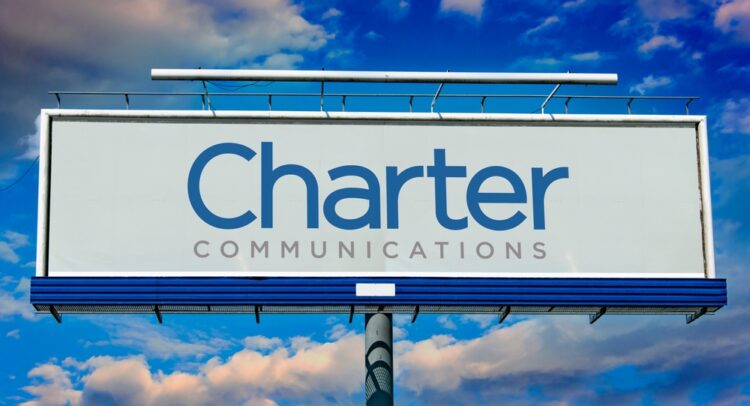Charter Communications faced a significant setback as its shares plummeted by 16.5% following disappointing fourth-quarter earnings and an unforeseen loss of broadband subscribers. The company reported a decline of 61,000 internet customers in the quarter ending December 31, contrary to the expectations of Wall Street analysts, who anticipated a marginal gain.
Closing the day at $319.21, the stock witnessed trading volume nearly five times the normal levels. Initially dropping about 12%, it continued its downward trajectory throughout the day amid increasing negative sentiment.
Earnings saw a sharp decline from $7.69 in the same quarter of the previous year to $7.07, falling well below the analysts’ consensus forecast of $8.73. While the total revenue remained flat at $13.7 billion, matching Street estimates, the unexpected dip in broadband subscribers raised concerns.
The challenges faced by Charter in the broadband segment mirrored those of its rival, Comcast, which reported a loss of 34,000 internet subscribers in the preceding quarter. Broadband has historically been viewed as a stronghold for cable providers amidst the prevalent trend of cord-cutting.
During a conference call with analysts, Chris Winfrey, President and CEO of Charter, acknowledged the difficulties, attributing them to “more persistent competition from fixed wireless and similar levels of wireline overbuild activity.” Winfrey characterized these challenges as “temporary.”
The company also reported a loss of 248,000 residential video customers in the fourth quarter, with declines partly attributed to video disconnects related to the temporary loss of Disney programming in September during a carriage dispute. Video revenue saw an 8% decline in the quarter.
Despite these setbacks, Winfrey highlighted the launch of Xumo, a joint venture with Comcast, during the fourth quarter. Xumo aims to streamline the interface for streaming customers and aligns with Charter’s plans to modernize distribution agreements, preventing customers from paying for video in both pay-TV and streaming.
This unexpected downturn in broadband subscribers raises concerns for Charter and underscores the challenges faced by traditional cable providers amid changing consumer preferences and increased competition in the broadband market.















































